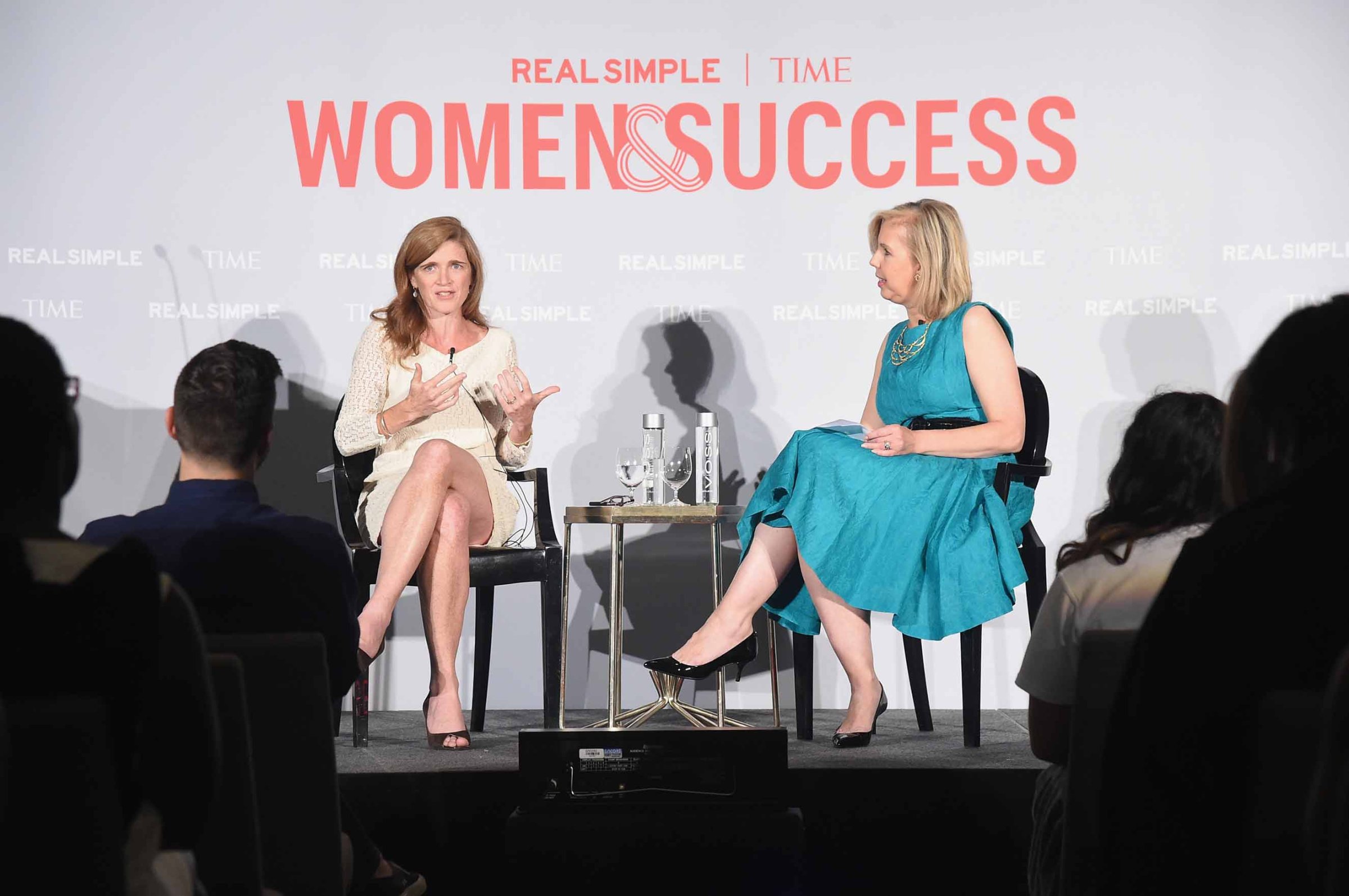
America’s Ambassador to the United Nations Samantha Power talked to TIME managing editor Nancy Gibbs about balancing international diplomacy with mothering — and it turns out, the two are not as separate as you might think.
Speaking at the second annual Real Simple/TIME Women & Success Panel, Ambassador Power said her two kids, ages 3 and 6, like to be in the loop on everything. Her son has a world map on his wall that he likes to ask his mother about. He zooms in on Zimbabwe, said Power, “and he keeps asking me, ‘Is Mugabe still there?'”
Power said the “Blackberry, distracted-mommy life” is “the only thing they’ve ever known.” But they’ve clearly internalized some of the important concepts, including the U.S.’s renewed relationship with Cuba. “When I knew what was about to happen with Cuba, I couldn’t tell anyone on my staff, so I told my [then] five-year-old,” said Power. She explained to him, “‘We stopped doing business, we stopped sending clothes and toys,’ and he said ‘Toys?!'”
Some time later, her son was kicked in the face at school, resulting in a bloody nose. When Power got the call from the nurses’s office, her son grabbed for the phone and proclaimed of the kicker, he “needs an embargo!”
Of her own career path from journalism to Pulitzer Prize-winning author to diplomat, Power said the trajectory seems much different in retrospect. “It sounds like this unbelievably contrived and Machiavellian path towards world domination, but as it was lived it was unbelievably confused,” she said. “More and more young people seem to be envisioning something and then working backwards,” said Power. “The best way to make any decision is by smell and by gut.”
Power also weighed in on some of the issues that will likely dominate the U.N. General Assembly in late September, noting that the U.S. “must do more” to address the millions of migrants fleeing Syria and Iraq. “We need citizens and the private sector be involved. We need companies to come forward and say ‘hey, we’re going to hire refugees to do X or Y,’” said Power. “But as big as the gap is between the needs and resources being provided, it’s not for a lack of generosity — it’s because we’ve never had 60 million refugees being displaced before. And our system is buckling under the weight of that.”
“Wars are not ending as quickly as they once did,” she added.
More Must-Reads from TIME
- Cybersecurity Experts Are Sounding the Alarm on DOGE
- Meet the 2025 Women of the Year
- The Harsh Truth About Disability Inclusion
- Why Do More Young Adults Have Cancer?
- Colman Domingo Leads With Radical Love
- How to Get Better at Doing Things Alone
- Michelle Zauner Stares Down the Darkness
Write to Charlotte Alter at charlotte.alter@time.com